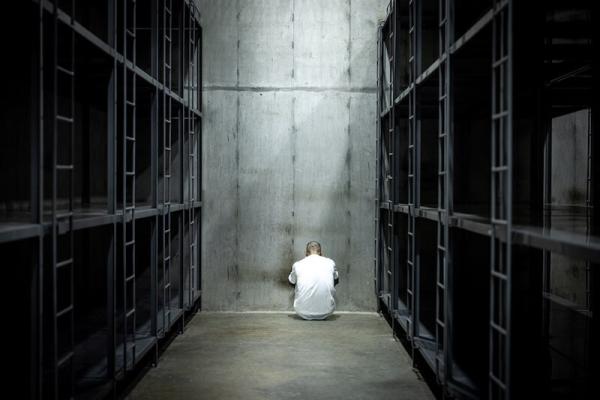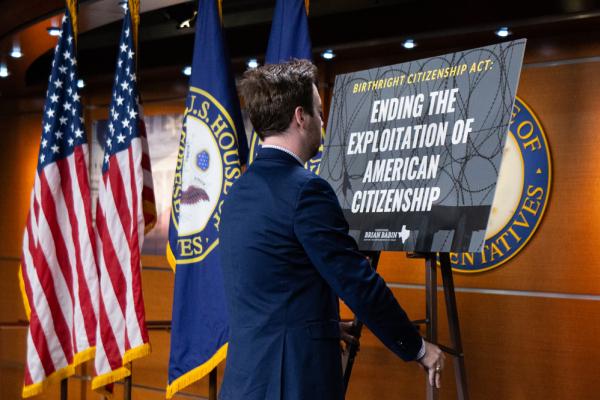When Palm Sunday arrived in 2020, the coronavirus pandemic had only just begun, and Tom Ancona’s church, Holy Martyrs, was entirely shut down. There was no way to bless and distribute palm branches to congregants.
So Ancona, who lives just outside Portland, Maine, with his wife and two children, improvised. “We grabbed pine branches and did it ourselves and watched Mass online,” said Ancona, who serves on the pastoral council of his Catholic church.
Nearly a year later, as the Lenten season approaches, the church has adapted to the new normal. On Ash Wednesday, priests will drop ashes on people’s heads instead of making the sign of the cross on their foreheads.
“It’s brief and everybody is masked,” Ancona said.
The parish is also offering books for reflection and will be facilitating virtual sharing groups throughout Lent. “There's not the same expectation of everybody doing one thing this year, because some people are very burned out on things right now and other people are looking for ways to engage,” Ancona said.
‘It’s not just a ritual anymore’
Lent is always a solemn period of penance, reflection, and prayer, but this year that reflection is different. Though vaccinations are on the rise, the virus has killed nearly 500,000 people in the U.S. and forced many more into isolation. For many Christians, Lent in 2021 has also taken on a new significance beyond the requirements of social distancing.
“We deal with lament during this period of time,” said Rev. Dr. J. Herbert Nelson, II, stated clerk of the General Assembly of the Presbyterian Church (U.S.A.). “But now we know what it means to have to deal with lament. It’s not just a ritual anymore. It’s what happens when we can’t come into relationship with each other.”
Nelson said it has been a challenge to adapt formal church rituals in the pandemic without trivializing them. Drive-by communion or ash distribution is “not how we typically do it,” he said.
“So much of the foundation of church life has been connected to being in person,” Nelson said, noting that Ash Wednesday services are typically built around music and gathering. “So what happens when you can’t do the music? What happens when you can’t gather?”
For most congregations, what happens is a mixture of adaptation and innovation as churches do their best to modify liturgies to comply with public health guidelines.
The Vatican has directed Catholic priests not to mark the sign of the cross on worshippers’ heads on Ash Wednesday, and instead sprinkle ashes on them silently. Priests have been told to recite the formula only once, while remaining distanced from those who are gathered: “Repent, and believe in the gospel” or “Remember that you are dust, and to dust you shall return.”
The United Methodist Church provided a range of options for churches to mark Ash Wednesday, from entirely virtual to drive-through or in-person but distanced services. The church’s Discipleship Ministries suggested distributing ashes in small baggies or envelopes, or handing out burlap squares with ashes in the sign of the cross to each person in attendance.
First Christian United Church of Christ in Burlington, N.C., will host two “Ash N Dash” services on Ash Wednesday, distributing ashes to congregants via window clings that will be placed on their cars.
Rev. Michelle Funk, the church's pastor, said she came up with the idea three years ago at her previous church in Pennsylvania. It's born out of a desire to connect with the local community in a new way.
Funk, who was just called to First Christian at the end of last year, said the format is perfectly suited to the needs of the pandemic. As for Ash Wednesday services, “we’re doing a virtual worship service in conjunction with two other UCC churches,” Funk said.
Funk said she hasn’t decided what exactly the church will do on Palm Sunday. “We’re tossing the idea around of a palm parade with palms waving out of cars,” she said.
Jerusalem Greer, The Episcopal Church’s staff officer for evangelism has helped advise Episcopal churches during the pandemic, particularly in adapting liturgical practices to the limitations imposed by the public health crisis. Greer said there are no churchwide directives but that a guiding principle for all dioceses has been “inspire all, harm none.”
Many Episcopal churches are distributing Lent-in-the-bag or Lent-in-the-box packages that contain materials for households to engage with Lenten practices throughout the entire season, she said.
St. Mary’s Episcopal Church in Cypress, Texas, typically hosts a pancake supper on Shrove Tuesday. This year, they’re distributing kits with pancake mix, syrup, Valentine chocolates, Mardi Gras beads, and Lenten materials for adults and children, according to Gail Jackins, parish administrator.
St. James Episcopal Church in Wilmington, N.C., will host a drive-up pancake supper and also distribute Lent-in-a-box kits, which include, among other things, a King Cake, Mardi Gras beads, a bag of ashes, materials to set up a Lenten prayer space, and wheat germ seeds for people to plant so that the seeds will sprout by Easter.
“This is a really hard time in the church. We’re just trying to come up with ways to get people engaged,” said Barbara Whitesides, a church volunteer. “People seem to like the fact that they can pick it up, take it home, and do as much or as little as they want.”
Focusing on justice and self-examination
As a way of marking the period of grief before Easter, some churches typically engage in a ritual of burying or hiding the word ‘Alleluia’ during Lent so that it can be brought out again in celebration on Easter. In many Episcopal churches, this is a group activity in which children are encouraged to participate, according to Greer.
Juniper LaNunziata, director of Christian formation at St. Paul's Episcopal in Greenville, N.C., came up with a creative Alleluia project to include in the church’s Lent-at-home kits. LaNunziata designed a template for an origami box with two sides: One side is purple and the other says Alleluia in gold glitter.
“During the season of Lent, you fold it so that the word Alleluia is contained inside the box,” they explained. “At Easter, you’re able to reverse it and fold it in the other direction so that the gold Alleluia is showing.” LaNunziata published the template online and has offered it to other churches in exchange for a donation to the National Bail Out, a Black-led activist group dedicated to ending pre-trial detention and mass incarceration.
This focus on racial justice is appropriate for the Lenten period, according to Michele Dillon, a sociology professor at the University of New Hampshire. Dillon, who studies Catholic spirituality and practice, said she expects many Catholic churches to host reading groups on anti-racism in the church.
“We talk about giving up something, but [Lent] is really a time of contrition and examination of self,” Dillon said. “I think you’ll see a new focus this Lent on looking at the sins of racism and how the church itself as individuals and as an institution have contributed.”
After the last 12 months, Lent has taken on a much deeper meaning. Greer said the anniversary of the pandemic has a particular resonance as it coincides with Lent.
“We understand that wilderness time, that darkness, in a whole new way,” she said. “I think we understand what to lament means much more, and we now understand the hope for resurrection even more.”
Hope, she said, can be sustaining, particularly as the pandemic wears on.
“As Episcopalians, we tell time by the liturgical calendar,” she said. “While we will miss being in person and our traditional settings for things like Ash Wednesday and Maundy Thursday, it’s not our one shot. We’ll get to do this again. Because the calendar just repeats and repeats and repeats. Our traditions hold, they wait for us.”
Got something to say about what you're reading? We value your feedback!







